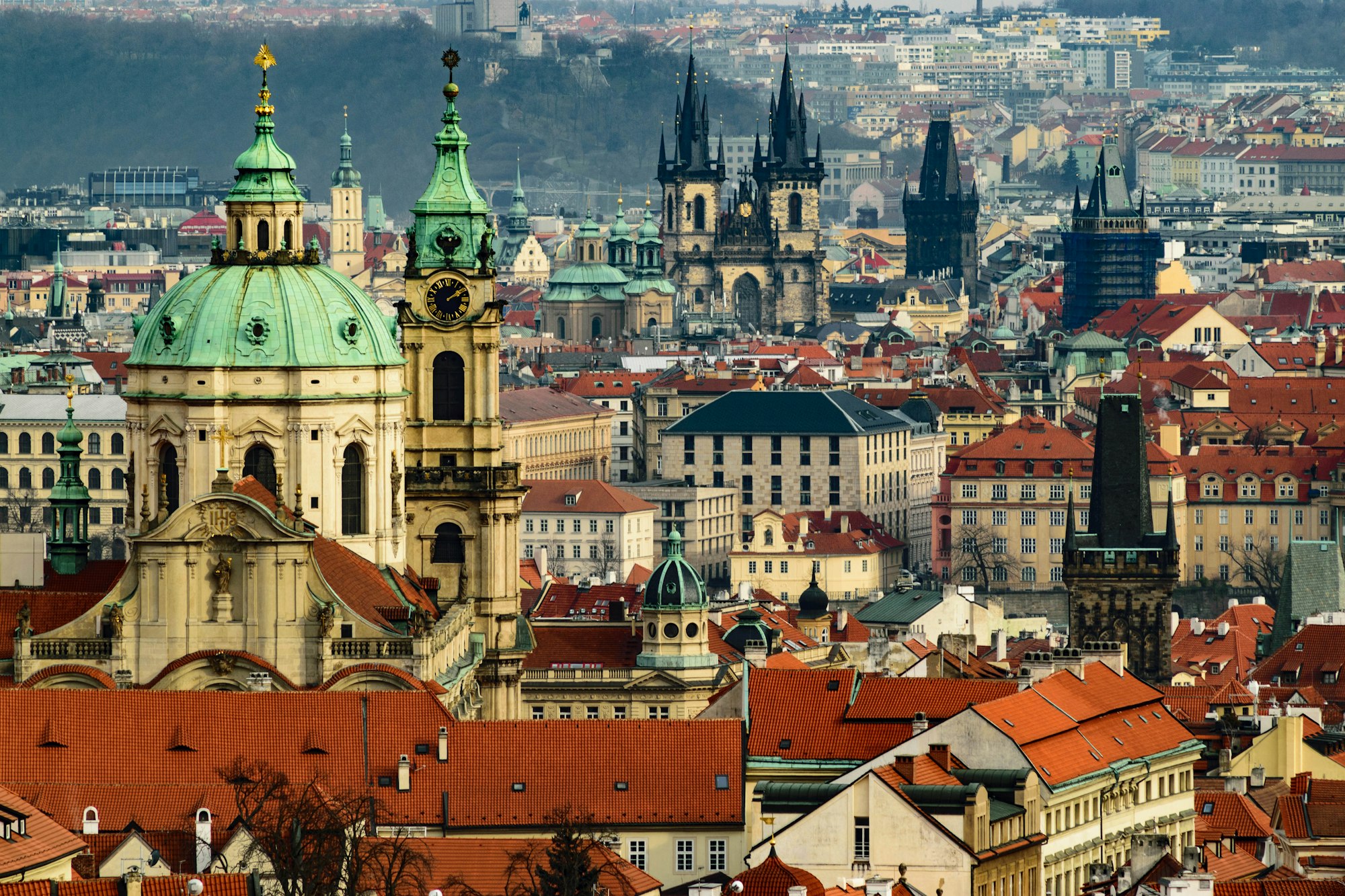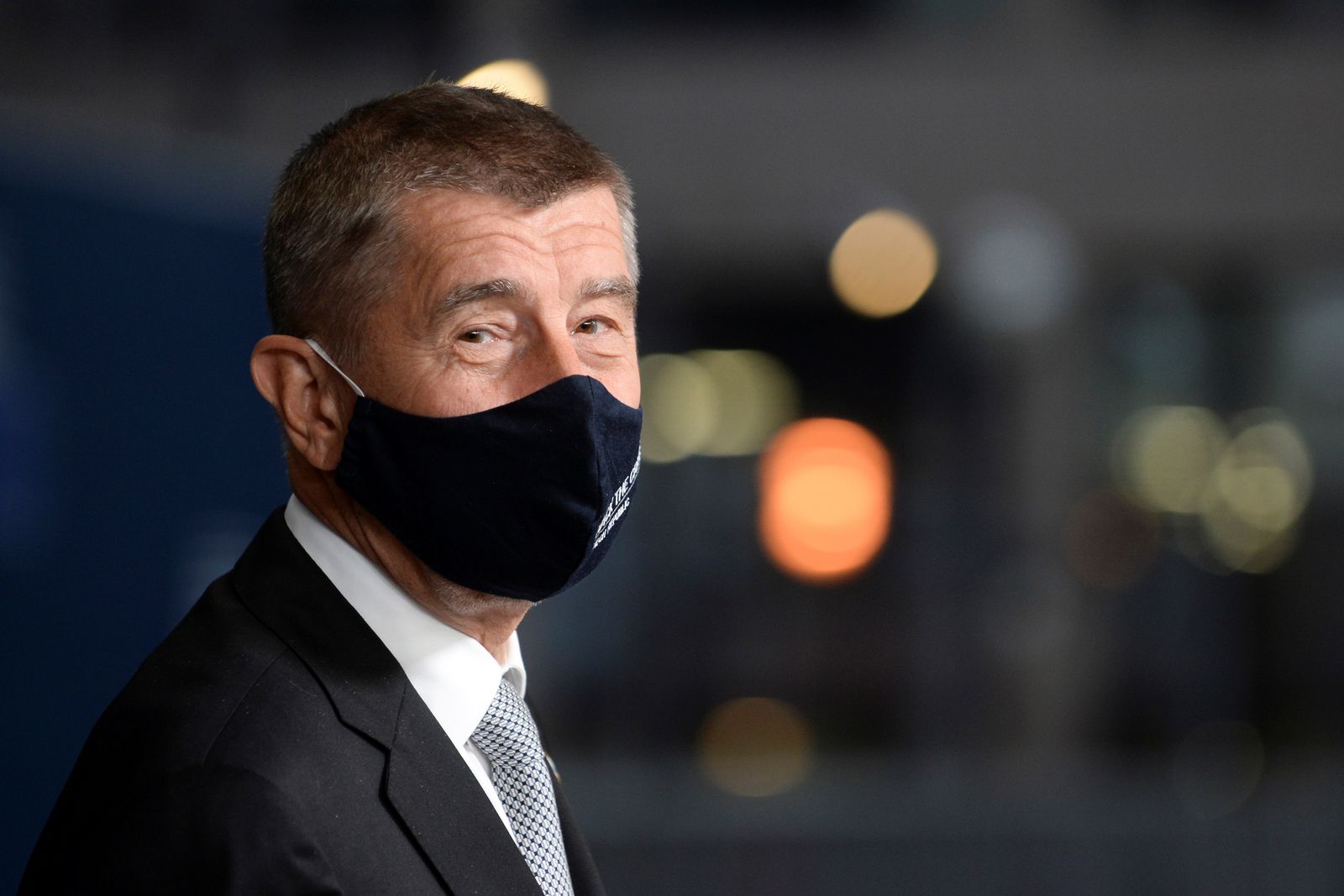Andrej Babiš has served as Prime Minister of the Czech Republic since December 2017. After becoming the second-wealthiest person in the country, Babiš started a center-right political movement in 2012 to challenge establishment parties; he remains one of the most polarizing figures in Czech politics to this day. Babiš spoke with Garrett Walker in early August.
Czechia was the first country in Europe to mandate face masks, and an early crackdown allowed for partial reopening. What inspired you to take action against COVID-19 so early on? Would you have done anything differently?
To be frank, nobody anticipated the scale of the epidemic of COVID-19 in Europe. After the rapid spreading in northern Italy and Austrian ski resorts, our leading epidemiologists and mathematicians made a prediction, and it was clear that the risk of a medical system overload was too high. So, the government pursued a complex set of measures suggested by the board of epidemiologists and public health officers (i.e. face masks, closing schools and businesses, and travel restrictions), which kept human contact to a minimum and gave us time to fight the epidemic. Basically, it was a controlled shutdown of the entire country, never experienced before and I hope never again. A quick response—within days—was crucial.
But there was another essential factor to our success: astonishing discipline and restraint of Czech citizens. I can say that 99.9 percent of Czechs followed the recommendations and cooperated with state agencies. I am immensely thankful that Czechs kept a cool head facing the biggest challenge since World War II, showed respect, and helped each other unselfishly. When others were buying guns, Czechs were sewing masks. And that matters.
Eight years ago you founded a new political party, ANO 2011, which upended Czechia’s political landscape. How would you distinguish your party’s success from the success of other European populist movements?
The term “populist” is nonsense. I started the ANO movement with one simple goal in mind: to break down the political-economic matrix of corruption, endless mismanagement, and abuse of power that I witnessed during the 1990s and 2000s. I offered the Czech citizenry an alternative to traditional political parties (especially the Civic Democratic and Social Democratic Parties) and a different style of management without behind-the-scenes-deals and clientelism. It all works. Now, after seven years in government, the ANO movement is no longer a protest party, as you are suggesting. Populist politicians are hotshots, they skyrocket in popularity using catchy promises, but the reality of day-to-day decision-making in office makes them highly unpopular and they then fall into oblivion. ANO succeeded in every election since 2011. We have MPs, senators, MEPs, mayors, and thousands of ordinary members. ANO became the most stable and successful political force in the Czech Republic in a few years. That cannot be done only through marketing or efficient PR. You must be in touch with people, especially with those who were left out by traditional parties.
From the beginning, you made anti-corruption a key part of your appeal to voters. Are you satisfied with the progress your cabinet has made on that front?
We have done a lot of work in this field. For example, crucial laws about funding political parties and government spending transparency could hardly have been adopted without ANO initiative and my supervision. But fighting corruption requires more than laws when the mafia controls the highest circles of power, as it did in the Czech Republic before 2013 when the mistress of the prime minister abused the state’s secret service for personal goals. You must cut off the heads of the “Corruption-Hydra,” get rid of people in governmental bodies on the mafia payroll, then get rid of their friends and the friends of those friends. This is slow and non-rewarding work, but we managed to clean up the most important state circles. But the Hydra is still strong and, with the help of some media platforms, is pushing back using pseudo-scandals and denunciation campaigns against me and other figures of the ANO movement.
Speaking of “pseudo-scandals,” a 2019 European Commission audit found that you channeled subsidies to your conglomerate, Agrofert, while in office. You rejected that finding, and called the subsequent protests “hysteria.” That investigation was nonpartisan; where do you feel it went wrong?
In my case, you can see how disinformation campaigns are waged. I can only say over and over again that I on every occasion followed the Czech and European law. The fact that my former company, Agrofert, was a recipient of European money does not have to turn me into an EU vassal, someone under EU influence. Every single euro that my former company received in subsidies was received in accord with current EU rules. This whole campaign was started by Czech politicians as a part of their efforts to criminalize me and my family. However, the investigation of the Čapí hnízdo subsidy case is still in progress with no conclusion yet. Speculation that I have committed any crime, or that I am in fact guilty before the investigation has ended, does not belong in Europe today.
You rank among the most popular politicians in Czechia despite an unorthodox path to power. Why do you think so many voters have grown frustrated with establishment parties?
Sorry, but my way to power was very “orthodox.” What should a citizen do when he is not satisfied with the current parties and their politics? When he is disappointed by everything that is going on? When he sees that “professional politicians” care only for money and influential posts, not for the people? Start his own movement, articulate basic principles, form a credible team, and join the political process through elections. It is simple as that. Citizens in the Czech Republic were simply fed up with the political reality. They wanted a change. And I offered politics based on a few simple principles: a managerial style of decision-making, a small but effective state, and the nomination of state officials based on skills and transparency, something that was not common before 2017 when I was appointed prime minister. People want to be heard and they want to see results, so they put their faith in you.
Some have called you the “Czech Trump” because of your business background and rapid political success. How has your career experience changed your approach to politics?
The comparison with the 45th US president is not accurate. Donald Trump was born with a silver spoon in his mouth in one of the richest cities in the world, in contrast to me: born into a middle-class Slovakian family with no business background in socialist Czechoslovakia. So, our life and success stories are completely different.
I think that starting from scratch had a significant impact on my approach to decision-making. Some things are easier for me than for old-school partisan politicians. I am able to direct things on my own without a middleman or support staff; that is an advantage because I stay oriented in most of the agendas and keep track of every important issue. I am aware that this is a very time-consuming technique—I sleep for only five hours a day—but this is my style. Every minute in office must be filled by working on the promises I made during the election campaign. And experience in business, a field in which everything can be taken away through one bad decision, is tremendous preparation for politics in general.
In 2015, you took a strong stance against EU refugee quotas during the migrant crisis. Now that migration to Europe has slowed, are you still opposed to welcoming more refugees?
The quotas? Over my cold dead body. Not one Czech citizen agreed to a situation in which some EU officials and foreign actors decide who will be accepted into the Czech Republic. EU refugee quotas are a symptom of something more serious—an inability of some EU members to defend their territory, their citizens, and the provisions of the Schengen Agreement at the same time. Solidarity does not mean allowing everybody in. We offered the affected EU members and other countries our personnel and financial aid—for example, Czech policemen were stationed in Greece and Northern Macedonia. All “activists” helping refugees from the African coast to Europe are naive idiots to me. They allow the whole smuggling business to go on. Any system of redistributing illegal migrants can only worsen the situation of desperate people in Africa and Asia, and the Czech Republic cannot participate in these short-sighted and useless solutions. I am glad that other countries, especially those in the Visegrád Four [Czechia, Hungary, Poland, and Slovakia], supported our view, and that the whole idea of quotas is dead now.

Czechoslovakia experienced profound institutional transformation in the 20th century: independence in 1918, Nazi annexation, membership in the Warsaw Pact, the Prague Spring in 1968, and the Velvet Revolution and Divorce in the 1990s. How did Czechia emerge to such stability?
Czechs have existed right in the middle of Europe for more than a thousand years now, so we have lived through both golden ages and national disasters. As you are suggesting, the 20th century was very turbulent for Czechia. We experienced both Nazi and communist totalitarian regimes, so Czechs are very cautious about their freedom and independence. We have learned that simple answers to complex problems can be dangerous, and that the road to hell is paved with good intentions. No revolution, no ideology, no enlightened leader can solve your problems. Only hard work and understanding each other can.
But, the bloody 20th century is gone, and I am convinced that the Czech Republic is on its way to becoming one of the top 10 most successful countries in the world. We have a large pool of experienced and highly innovative experts in many promising areas such as gaming and nanotechnology, we are European leaders in e-commerce, and we have one of the best public-funded medical systems. As we combine healthy public finances and a society that sticks together, we can make the 21st century our century.
In 2019, 75 percent of Czech citizens opposed adopting the euro. You have not made adoption a legislative priority, despite a legal obligation to join the eurozone. Do you see a future for the euro in Czechia?
The Czech Republic is ready to enter the eurozone. But in this situation, when we expect some reforms to EU governance, we choose to wait. The euro is more of a political than an economic project. Besides that, we are now seeing serious structural challenges that are potentially very dangerous: tensions between the prosperous northern members of the EU and the stagnating south were clearly visible during the post-pandemic recovery package negotiations. And while the 19 states of the eurozone have a common currency, they still have different economic approaches and follow different budget strategies. No one has the power to force heavily indebted countries to act more reasonably. That is the main problem that must be urgently solved. Still, the fact that we criticize some aspects of the EU integration process does not mean that we are against the idea of the European integration in general. Constructive criticism in the post-Brexit EU is necessary.
Finally, what do you want your legacy to be after you leave office?
Nothing special. No legacy with statues or an indelible place in history books. I would like to be “that guy” who finally allowed state agencies to work as well as private companies. The Czech administration historically lacked rational decision-making and long-term planning; our government, for example, was the first to plan all necessary investments for the next 30 years. Nobody had done this before. But only with a clear vision of Czechia’s direction can we stay successful long into the 21st century and beyond. That will be a tremendous task.
The interview was lightly edited for clarity.




